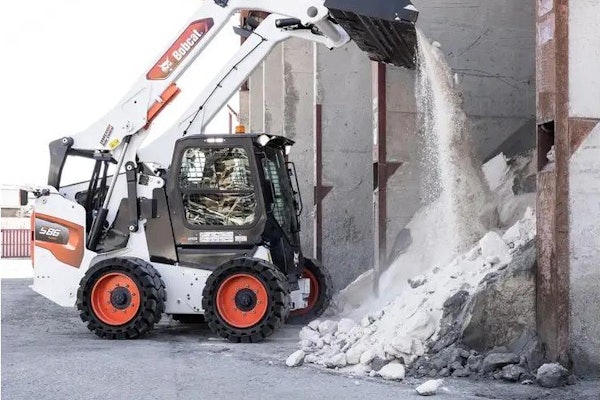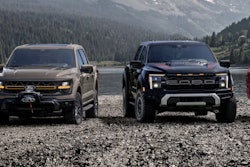Keith Upham’s professional career started when he took a job as a waiter at a local restaurant. That job didn’t last long – all of five days, in fact. “I couldn’t stand being indoors,” he says now.
Knowing only that he wanted to work outside, Upham found himself working for a local landscaper and loving his job. “Scott Wilson, the owner of that company, was really my mentor,” Upham says. “He steered me toward the University of Massachusetts and helped me get into their landscape management program.”
Out on his own
Once school was out of the way, 21-year-old Upham knew he wanted to start his own landscaping business. There was just one problem: He didn’t have any money. “Luckily, my father helped me secure a loan at the local bank,” he says.
With $25,000 burning a hole in his pocket, Upham spent $14,500 on a pickup truck and spent the rest on a mower, trimmer and backpack blower. “And just like that,” he says, “I was in business, charging $18 an hour for my services.”
One year later, in 1989, Upham’s business had grown to such an extent that he bought another truck and brought another crew on board. Other changes were happening as well. “I remember I thought I’d struck gold when we won a $7,500 installation job,” he says with a laugh. “I beat out a competitor who’d been in business 10 years, and that was just huge to me.”
Upham Landscape was growing dramatically, thanks in large part to his brother Kurt coming on board, but Upham admits he really didn’t have a handle on things. “I was so caught up in the day-to-day running of the business, I didn’t have a long-term plan,” he says. “I was always reacting to things and didn’t realize it.”
Getting a handle on things
All that changed about seven years ago. On an impulse one evening, Keith got an accountant friend to show him how to read and interpret his business’ financial statement. “It was like a lightbulb went off instantly in my head,” he recalls. “A Harvard business professor would probably shudder to think I ran a business for 10 years before I mastered that skill – but I think it’s like that for a lot of landscapers. We’re so busy day to day, that you tend to focus on jobs, and actually managing your business is almost a secondary concern.”
Today Upham, in his own words, is continually crunching his numbers to ensure he has a firm grasp on his financials, including his profit and loss statements, balance sheet and what his short-term and a long-term liabilities are.
Another aspect Upham has mastered is the art of making shrewd equipment choices. “I think that when you’re young in this industry you get a little bit hung up on new equipment,” he says. “Guys go to the trade shows and see that shiny piece of equipment, and think they have to have it because they have friends or associates who are in business or bought some new equipment. You get trapped, thinking you’ve got to keep up with them by buying new equipment.”
Not any more. Upham says he’s learned the value of making things last as long as possible. “I’m still running the first lawn mower I ever bought, and it’s still a productive machine for us,” he says. “Old equipment can still look good. Just invest in a pressure washer and keep it clean.”
When it is time to replace a machine or expand his fleet, Upham tries to spend his money wisely. “Equipment is something that I’d prefer to pay cash for rather than finance,” he says. “It’s just common sense. If you’re in the market for a $4,000 or $4,500 lawn mower, and you can pay cash for it, save the interest and buy it outright. Then make that piece of equipment work for you a long time by taking care of it.”
Upham finances trucks, but he says he made a crucial change three years ago when he began switching over from gasoline to diesel engines. “You pay more up front for the diesel engines – about $3,500 more,” he notes, “but – again – it’s a matter of knowing your long-term costs. The diesels get better mileage, so you’ll eventually recoup that additional cost. On the other hand, diesels will give you longer service life and they have greater pulling power and durability in tough conditions – like snowplowing. So it’s a prime example of spending a little more to get a better, longer-lasting product for your business.”
Today, with his business stronger than ever, Upham has turned into a passionate advocate of good business practices in the landscaping industry. His company has grown to include nearly 20 employees and revenues of more than $1 million annually. His company specializes in creating dramatic scenic landscapes for high-end clients in the Boston suburbs – a niche market that requires a consistent eye for beauty, a high attention to detail and top-notch customer service at all times.
Upham says he could probably drop half his current customers and still stay busy, but that’s not for him. “I want to grow my business and get bigger and better every day,” he says.
And more than that, he hopes to eventually be in a position to give back to the industry he loves so much. “The business angle is neglected by so many landscapers,” he says. “I think back to the way I used to operate






